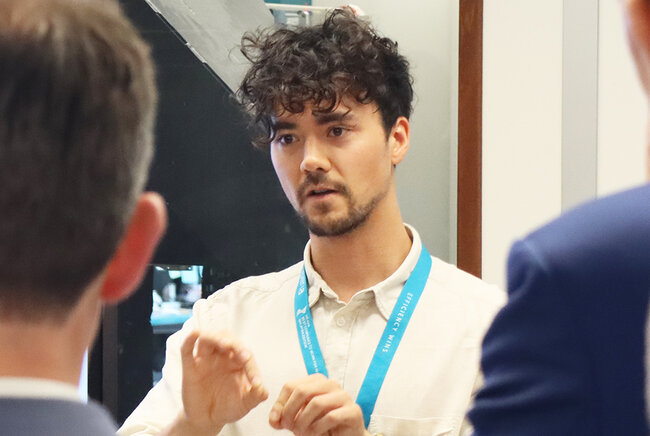Optimizing Semiconductor Manufacturing with Data-Driven Modelling
Patrick Deenen’s PhD Research brings new solutions on efficiency and productivity

As the demand for semiconductors skyrockets with the advent of disruptive technologies like 5G, Internet of Things, and autonomous vehicles, manufacturers are embracing Industry 4.0. This transformative shift leverages data analytics, optimization algorithms, and artificial intelligence to enhance efficiency and productivity in the manucturing process.
In his PhD research on the semiconductor industry Patrick Deenen unveils a series of innovative solutions which can significantly improve the efficiency and productivity of semiconductor manufacturing. These advancements promise to not only optimize production processes but also significantly reduce waste, thereby addressing critical challenges faced by the industry today.
Lower costs
The first innovation comes from an efficient simulation model that predicts the behavior of wafer fabs. By employing an aggregate modeling technique, this model eliminates the need for extensive development and maintenance costs, providing a more accurate representation of real-world behavior.
Efficiency and Effectiveness
Addressing the heart of a wafer fab, the photolithography area, Deenen's research introduces an automated scheduling solution. This innovation plays a crucial role in enhancing the overall performance of wafer fabs by determining the optimal sequence, timing, and machines for production tasks on the wafers. The novel constraint programming approach outperforms existing methods, offering a more efficient and effective solution.
Less waste
In his research Deenen also addresses the issue of overproduction and waste in the allocation of wafers leaving the fab for final product assembly. By presenting a mathematical model that optimizes this allocation process, the research can significantly help reduce overproduction, thus contributing to a more sustainable manufacturing process.
The research proposes several solutions that can increase the efficiency of semiconductor production and also have environmental benefits. By reducing waste and optimizing processes, this can lead to a more sustainable and eco-conscious future in the semiconductor industry. Ultimately, digital innovation has the potential to enhance daily life and contribute to the resolution of global challenges.
Patrick Deenen defended his thesis on 22 September
Title of the PhD thesis: Data-Driven Modeling and Optimization of Semiconductor Manufacturing. Supervisors Ivo Adan, Wim Nuijten, Alp Akcay